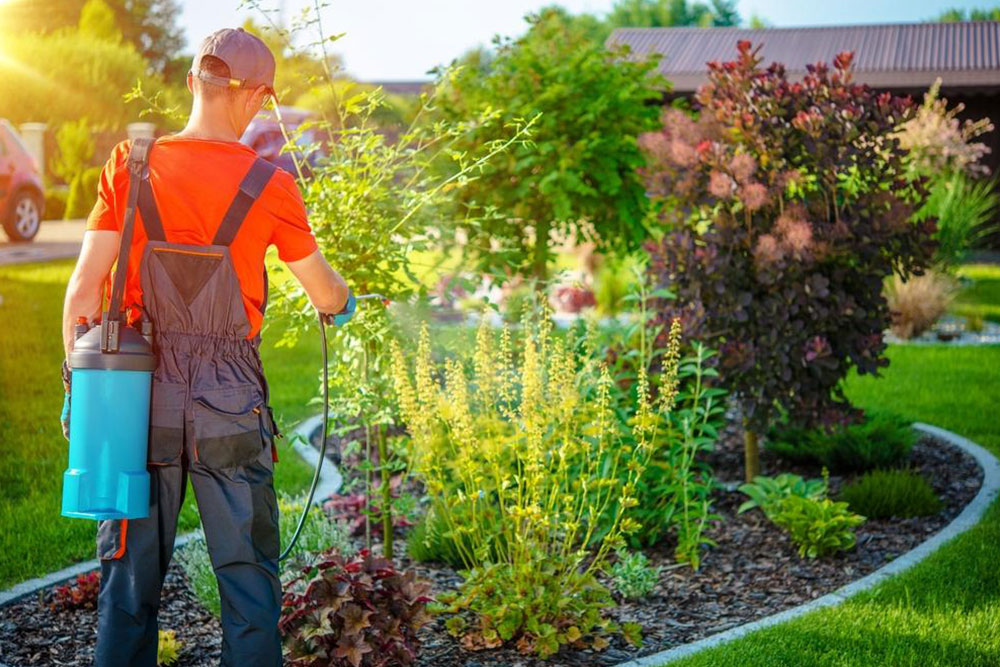Effective Methods to Keep Squirrels Away from Your Property
This comprehensive guide explores proven strategies to eliminate and prevent squirrels from invading your property. From physical barriers and repellents to humane trapping, discover effective methods to protect your garden and home. Learn how to block entry points, use eco-friendly deterrents, and when to seek professional pest control services for lasting results. Keep squirrels at bay with expert advice on signage, chemical repellents, and trapping techniques that ensure the safety of your family and pets while maintaining a squirrel-free environment.

Effective Methods to Keep Squirrels Away from Your Property
Squirrels are adorable creatures, but they can quickly turn into a serious nuisance when they invade your home and garden. These clever rodents can cause extensive damage by digging up plants, gnawing on structures, and creating cluttered, unsightly yards. When left uncontrolled, their nesting habits can lead them to settle in attics and wall cavities, making eradication more challenging. Fortunately, there are numerous proven strategies you can implement to deter squirrels effectively while ensuring the safety of your family and pets.
Understanding Squirrel Behavior and How They Are Attracted
Before diving into deterrent methods, it's important to understand what attracts squirrels to your property. They seek food, shelter, and safety. Their primary food sources include nuts, seeds, fruits, and crumbs left around your yard or garden. Squirrels are highly adaptable, capable of exploiting even small food scraps, making basic cleanup crucial. Additionally, they look for safe nesting areas, which are often found in trees, dense shrubbery, or the attics of homes. Recognizing these attractions allows you to develop effective prevention strategies.
Natural and Physical Barriers to Keep Squirrels Away
One of the most straightforward methods to prevent squirrel intrusion is through the use of physical barriers. Installing fine mesh or hardware cloth around garden beds, trees, and roofs prevents squirrels from gaining access. Covering your fruits and nut trees with protective netting can be especially effective during harvest seasons. To keep them from climbing onto your roof or into your attic, consider installing squirrel guards or shields on your trees and utility lines.
Regularly inspecting and sealing small entry points around your home is crucial. Areas where utility cables or vent pipes enter your home should be sealed with metal flashing or hardware cloth to prevent a squirrel from squeezing through. For attics, using metal screens over vents and securing any gaps with durable materials can prevent entry. Remember, squirrels are agile and resourceful, so thorough and persistent sealing is key to long-term prevention.
Using Repellents and Deterrents Effectively
Several repellents and deterrents have been proven to discourage squirrels from visiting your property. Spicy scents like cayenne pepper, paprika, and red chili flakes can be sprinkled around garden beds and plants, making the area unappealing to these rodents due to their sensitive taste buds. Reapplying after rain or watering ensures sustained effectiveness. Additionally, scent-based repellents containing predator urine or commercial repellent sprays can be used around in-ground plants or backyard areas to mimic predator presence and scare squirrels away.
For indoor deterrence, strong odors such as mothballs, naphthalene, or homemade solutions with garlic or chili spray can be placed near potential entry points or nesting sites. Ultrasonic devices, emitting high-frequency sounds inaudible to humans but bothersome to rodents, provide a humane and non-invasive way to keep squirrels at bay. These gadgets can be plugged into indoor outlets or outdoor areas where squirrels are active. Regularly testing and repositioning these devices enhances their effectiveness.
Eco-Friendly Water and Chemical Solutions
Installing motion-activated sprinklers is an effective, eco-friendly method to deter squirrels. When movement is detected, a sudden spray of water startles and discourages them from lingering in the area. These devices are safe for the environment, pets, and humans while effectively reducing squirrel activity. Additionally, some garden centers offer natural repellents formulated specifically to push away rodents without the use of harmful chemicals.
It is important to note that chemical repellents should be used with caution, especially around children and pets. Always follow manufacturer instructions, and opt for environmentally friendly products whenever possible.
Trapping and Removal Strategies
When preventative measures are insufficient, trapping can be an effective control method. Live traps, which catch squirrels without harming them, allow you to relocate the animals at a safe distance from your property. Moving squirrels far away, ideally several miles, helps prevent them from returning. It’s essential to check traps regularly and handle captured animals humanely.
For quick elimination, lethal traps such as spring-loaded devices can be used, but they should be handled with care to prevent injuries to children or pets. Proper placement is key; set traps along squirrels’ preferred travel routes like fences, tree branches, or near known nesting sites.
Poison bait stations are another option but are generally not recommended unless operated by trained pest control professionals. They pose risks to non-target animals, wildlife, and children. The safest approach is professional pest control, especially when dealing with persistent or large squirrel infestations.
When to Call Professionals for Squirrel Control
Despite best efforts, some squirrel problems may require professional intervention. Pest control experts have the experience, tools, and knowledge to address serious infestations safely and effectively, using a combination of trapping, exclusion, and removal techniques. They can also identify access points you might have overlooked and provide long-term solutions to prevent future infestations.
In conclusion, managing squirrel activity on your property involves a combination of preventive measures, repellents, physical barriers, and humane trapping methods. By understanding squirrel behavior and implementing a comprehensive plan, you can protect your garden, attic, and outdoor spaces from these clever rodents. If DIY methods don’t suffice, professional pest control services offer safe and effective solutions to keep your property squirrel-free for good.





